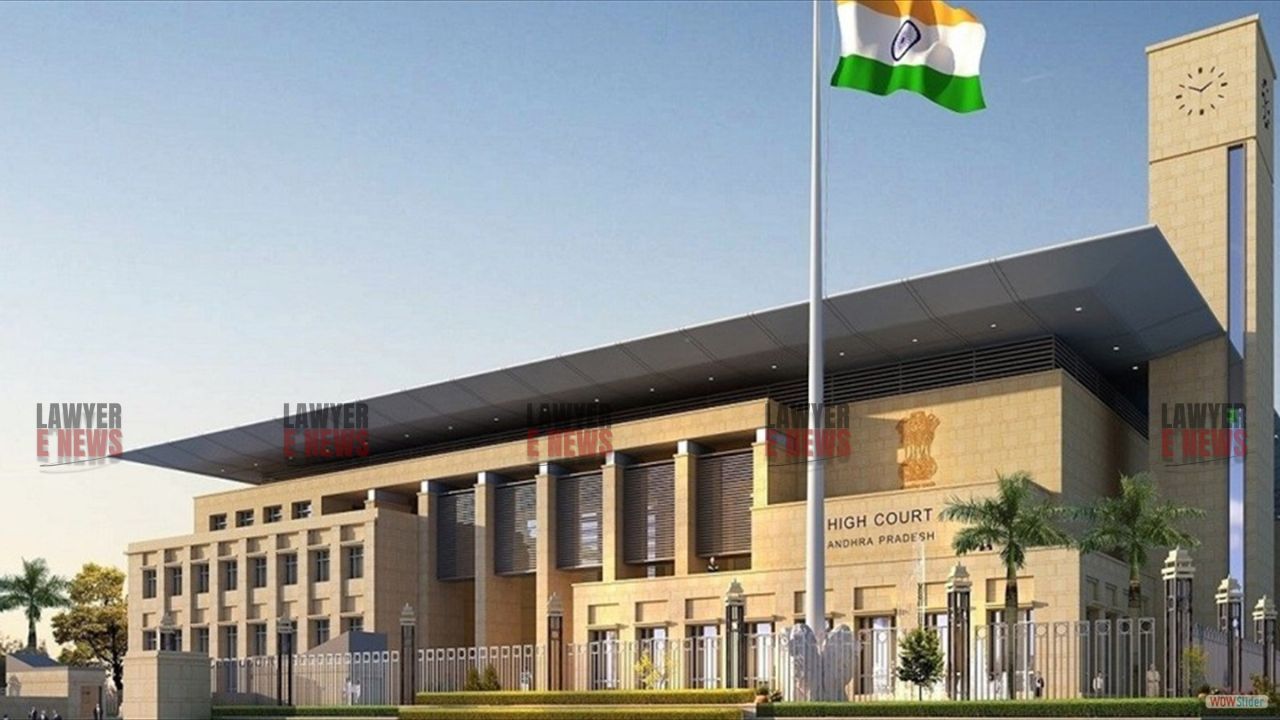-
by Admin
15 February 2026 5:01 PM



Andhra Pradesh High Court Orders Reinstatement and Back Wages for Dhana Lakshmi, Emphasizing Due Process and Natural Justice The Andhra Pradesh High Court has set aside the termination of Dhana Lakshmi, an Anganwadi worker, emphasizing that her dismissal based on a pending Anti-Corruption Bureau (ACB) case violated principles of natural justice. The judgment, delivered by Justice Harinath.N, mandates her reinstatement and partial back wages, highlighting the necessity of due process before imposing any major punishment on employees.
Facts of the Case: Dhana Lakshmi was appointed as an Anganwadi Worker in 1998 and later promoted to Supervisor Grade-II on a contract basis in 2006. Her service was abruptly terminated in December 2008 following an ACB case alleging corruption. Despite being reinstated by court orders in 2009, her termination was reiterated in 2011 without a formal enquiry, leading to the current writ petition.
Court Observations and Views: Termination Without Due Process: Justice Harinath.N underscored the lack of due process in Lakshmi’s termination. “Mere pendency of a criminal case would not entitle the respondents to straight away issue termination proceedings. The respondents have ignored the cardinal principle of innocent until proven guilty,” he noted. The judgment emphasized that no disciplinary enquiry was conducted, nor was a show cause notice issued prior to her termination.
Impact of Acquittal in ACB Case: The court took cognizance of Lakshmi’s acquittal in the ACB case in 2016, where the Special Judge for SPE and ACB Cases, Nellore, found no evidence of corruption or demand for illegal gratification. The chemical tests on Lakshmi’s hands yielded no positive results, reinforcing her innocence.
Legal Reasoning: The court stressed that an employee’s termination without a proper enquiry is legally untenable. “The respondents are legally required to conduct enquiry in a fair manner duly following the principles of natural justice before imposing any major punishment on an employee. Any major punishment imposed on an employee without conducting any enquiry has to be set aside as the same is bad in law,” the judgment stated.
Quotes from the Judgment: Justice Harinath.N remarked, “The pendency of criminal case to a large extent would not hamper or come in the way of the employee in discharging the official duties. The respondents are duty bound to issue a show cause notice and conduct the necessary enquiry before imposing any punishment on the said employee”.
Conclusion: The High Court’s decision to reinstate Dhana Lakshmi with 50% back wages and all service benefits sets a significant precedent for employment law, reinforcing the principle that employees are entitled to due process and fair treatment. This judgment serves as a stern reminder to authorities about adhering to legal protocols and upholding the rights of employees. The order also emphasizes that punitive actions based solely on unproven allegations without a fair trial are not permissible.
K. Dhana Lakshmi vs. The Government of Andhra Pradesh and Others
Date of Decision: August 1, 2024
